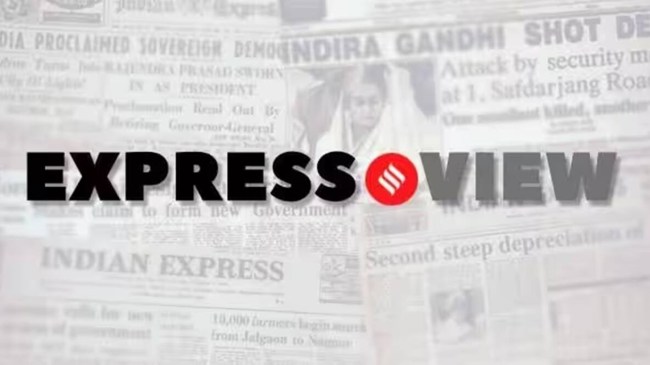Opinion At 75, India’s Constitution is mature, flexible and open to bear the weight of many voices
Across the political spectrum, the respect for independent India’s founding document is intact. Maintaining its values requires continuous conversation and dialogue of the kind witnessed in Parliament
 At 75, India’s Constitution is mature, flexible and open to bear the weight of many voices. Those who hold office in its name must do the same.
At 75, India’s Constitution is mature, flexible and open to bear the weight of many voices. Those who hold office in its name must do the same. The Constitution of India is a singular document, not least because it both frames and bears the many diversities of the country. The two-day discussion on the “Glorious Journey of 75 Years of the Constitution of India” in Parliament made one thing clear: Across the political spectrum, the respect for independent India’s founding document is intact and the political class — so often vilified — gave the country an edifying conversation and debate on its fundamental principles and institutions. As a document, the Constitution is the contract We, The People entered into with the state as it got constituted. However, the varied perspectives from MPs across party lines on the constitutional framework and its cultural context testify that “it is not”, as B R Ambedkar said, “merely a lawyer’s document”. It supports multiple interpretations and philosophies that are both behind and beyond political ideologies and parties. Maintaining the values of the Constitution, then, requires continuous conversation — and dialogue — of the kind witnessed in the House.
More than two-thirds of Indians living today were not born when the Constitution was overridden and the Emergency declared in 1975. That history must be kept alive, as a warning. It must never be forgotten that an unaccountable executive used its power to curb free speech, trample on press freedom and jail dissidents and political opponents. The basic principles and spirit of the Constitution were denied and inalienable rights, including those to life, liberty and dignity, were made contingent on the whims of the government of the day. The Prime Minister was, therefore, right in pointing out that the Emergency remains a “blot” in the story of independent India. The hollowing out of institutions and offices — governors becoming instruments of the Centre, for example — can also be traced to Congress rule. It is important, however, to remember that the lessons from the Emergency and other erosions of the constitutional scheme are not for Congress alone.
The decade from 2014 to 2024 was the first period of single-party rule at the Centre since 1984. Backed by a powerful ideology and party apparatus, the mandate seemed to empower the executive to unsettle the institutional balance of power envisaged in the Constitution. There were reversals in that period on minority rights and federalism. It is easy to forget — as the Congress once did — that even democratic “super majorities” are enabled through the Constitution — an overwhelming majority in Parliament does not place a government above the Constitution. The message from the voter in the 2024 general election seems to have echoed this principle, bringing about a coalition government once more: Cries of “400 par” were tempered by the electorate. Political parties — especially those in power — must recognise that the Constitution resonates with diverse sections and no one interpretation of India can be placed above others. So just as voices recalling the Emergency must be heeded, those holding power cannot ignore what 30-year-old MP Iqra Chaudhary said — she spoke not just for India’s minorities who feel besieged but also showed solidarity with minorities in Bangladesh. At 75, India’s Constitution is mature, flexible and open to bear the weight of many voices. Those who hold office in its name must do the same.






